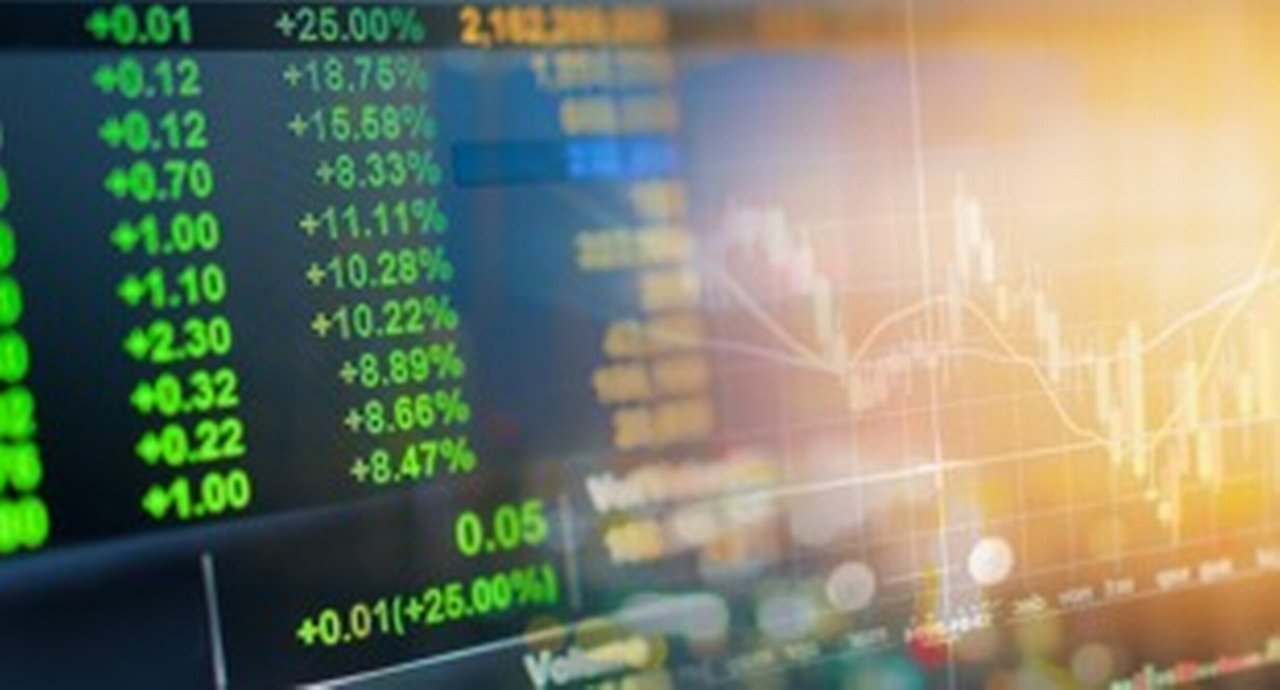24 August 2022
Saudi Arabia has demonstrated enormous resolve by opening up to foreign investors. Having once been inaccessible, the country has created an excellent framework to facilitate inward investment, reports Deutsche Bank’s Manoj Aidasani
MINUTES min read
Seven years ago, the ability to trade Saudi Arabian securities was still only accessible to international investors indirectly via swap arrangements and mutual funds. Saudi Arabia also lacked an independent custody model – meaning assets were often held at local brokers, exposing institutions to potential counterparty risk.
In addition, the market operated on a T+0 settlement cycle (the same day the trade is made), so trades had to be pre-funded. Fast forward to 2022 and the market is unrecognisable from what it once was. A series of liberalising measures introduced by the Capital Market Authority (CMA) from 2015 onwards has enabled qualified foreign investors (QFIs) to freely trade listed securities, with certain conditions. These post-trade reforms, most notably the adoption of T+2 and establishment of an independent custody model, have eliminated many of the risks that previously discouraged global investors from participating in the local market.
Market liberalisation yields positive results
Over the years, the CMA has simplified access channels to Saudi Arabia for foreign institutions by entrusting the QFI approval process to custodians, or so-called Authorised Assessing Persons (AAPs), expediting the entire procedure. Elsewhere, the regulator established a functioning derivatives industry so investors can properly hedge their market exposures. Beyond derivatives, the CMA has launched other investment tools including securities lending, securities borrowing and short-selling – all welcomed by foreign investors. Saudi Arabia has further enhanced its market infrastructure with the creation of four new subsidiaries:
- Saudi Exchange – Saudi Arabia’s dedicated stock exchange
- Muqassa – a domestic central counterparty (CCP)
- Edaa – Saudi Arabia’s Securities Depository Center Company, a Central Securities Depository (CSD)
- Wamid – a technology and data-focused solution for the market

Figure 1: Growth in institutional trading in Saudi Arabia
Source: Weekly stock market ownership and trading activity report – Tadawul
Each of these positive reforms ultimately resulted in significant foreign investment into the country.
While Saudi Arabia’s market remains overwhelmingly retail-dominated from a trading perspective, the Tadawul Periodic Report reveal a notable increase in institutional trading. In December 2015, institutional trading accounted for around 18% of overall trading volumes, a figure that had risen to 30% by April 2022. Regarding ownership, as of April 2022 QFIs held around US$87bn of Saudi Arabian securities, marking a notable shift. The figure exceeds forecasts – experts had initially anticipated that between US$40bn and US$45bn of capital would flow into Saudi Arabia following its Morgan Stanley Capital International (MSCI) upgrade in 2018. Despite these impressive inflows, the brakes have not been applied to the Saudi liberalisation agenda.
Post-trade reform gains momentum
In March 2022, the Saudi Tadawul Group announced several modifications to its post-trade infrastructure to help attract further international investment into the country. The changes will be felt across the Saudi Exchange, Muqassa and Edaa. Reforms to the Saudi Exchange include:
- The introduction of a more efficient handling of order flow by market participants through an enhanced mechanism for short-selling
- Same-day settlements (T+0) for buy-in trades which are executed on the Exchange
- A more flexible settlement cycle for negotiated deals, enabling buyers and sellers to agree on a settlement cycle from T+0 to T+5 depending on their requirements. This will benefit clients with liquidity as it is now possible to repatriate sales proceeds on the same day
For Muqassa, there will be an extension of clearing services to cover all securities traded on the Saudi Exchange including equities, sukuks and bonds, together with the adoption of a comprehensive risk management framework. Additional post-trade services, including the ability to rectify trades before settlement and average or split price trades, have also been unveiled.
Several changes being implemented at Edaa are quite transformational. These include the introduction of straight-through-processing (STP) via ISO 15022 messaging – something which will bolster post-trade settlement and market-wide efficiencies. In addition, providing daily position reporting will aid the reconciliation mechanism and provide flexibility for CSD users, while enriched ad-hoc reporting will be vital when sharing downstream information to end-institutional investors. Some other notable benefits for the custody process include:
- Corporate action reporting from Edaa, which is now received via STP in ISO 15022 messages
- Status updates of trade are carried out in real time, enabling swift matching and reporting
- Elimination of rejection procedures and access to the systems user interface
The impetus to further strengthen the domestic market shows no sign of decelerating and it does seem that many of the challenges which faced the Saudi Arabian market have been left behind.
In addition, structural reforms to Saudi Arabia’s asset management industry are still required, and in-house fund administration continues to be ubiquitous despite having been phased out in most other major markets.
For this reason, there is a real need for specialist, third-party fund administrators to drive costs down and provide independence and transparency to investors.
“The brakes have not been applied to the Saudi liberalisation agenda”
An eye on the future
Over the months ahead, digitalisation of financial services looks set to sweep through Saudi Arabia and across the GCC region, which is not far behind the world’s pacesetters in terms of Web 3.0 progress.
The bank is watching distributed ledger technology (DLT) and the crypto space with interest. Saudi Arabia has announced investments in digital technologies which will aid the growth of projects using DLT and artificial intelligence (AI). Asset tokenisation is likely to start developing in the region too, especially as it relates to illiquid instruments such as real estate. Overall, the GCC region is now examining the merits of digital asset custody as investor appetite for digital assets, such as cryptocurrencies and security tokens, continues to grow.
The pace of change in Saudi Arabia since 2015 has been phenomenal and the country’s ambitions are being rewarded with ample capital inflows. Having implemented a series of wide-ranging liberalising measures aimed at promoting inward investment, the country is making further reforms to bolster its already robust post-trade infrastructure. The bank anticipates listings of government-owned assets and by private companies in the technology, healthcare, finance and infrastructure sectors, that will create more liquidity in the market. By doing so, further inflows can be expected.
Manoj Aidasani is Head of Securities Services for GCC (Gulf Co-operation Council) at Deutsche Bank

Manoj Aidasani
Head of Securities Services for GCC (Gulf Co-operation Council) at Deutsche Bank
Securities services solutions Explore more
Find out more about our Securities services solutions
Stay up-to-date with
Sign-up flow newsbites
Choose your preferred banking topics and we will send you updated emails based on your selection
Sign-up Sign-upSubscribe Subscribe to our magazine
flow magazine is published annually and can be read online and delivered to your door in print
You might be interested in
SECURITIES SERVICES, TECHNOLOGY
Dawn of a Saudi securities services solution? Dawn of a Saudi securities services solution?
What will post-trade settlement in Gulf Cooperation Council countries look like in the future? And how can the OTC settlement process be improved? Deutsche Bank’s Manoj Aidasani proposes a blockchain-based solution, using non-fungible tokens (NFTs) and smart contracts to settle money market instruments
SECURITIES SERVICES
Where next in the Gulf for securities services? Where next in the Gulf for securities services?
Having bounced back from Covid-19-related shocks, liquidity in local equity and bond markets is now the priority in the Middle East as GCC economies attract overseas investors following market infrastructure reforms. Securities services in the region are also navigating ESG and digital asset developments. flow reports on discussions at The Network Forum Virtual Middle East meeting
SECURITIES SERVICES, REGULATION
Accelerated settlement – the move towards T+0 Accelerated settlement – the move towards T+0
One of the problems with securities settlement happening up to two days following the execution of the trade is the potential for operational and counterparty risk during that window. flow hears from Deutsche Bank’s Mike Clarke and Emma Johnson on the industry and regulatory cooperation, as well as the collaboration needed for instantaneous settlement



